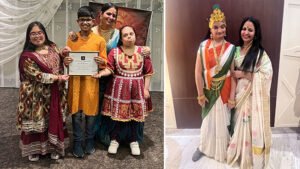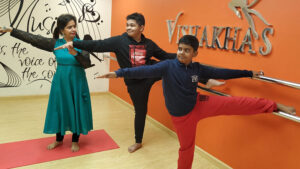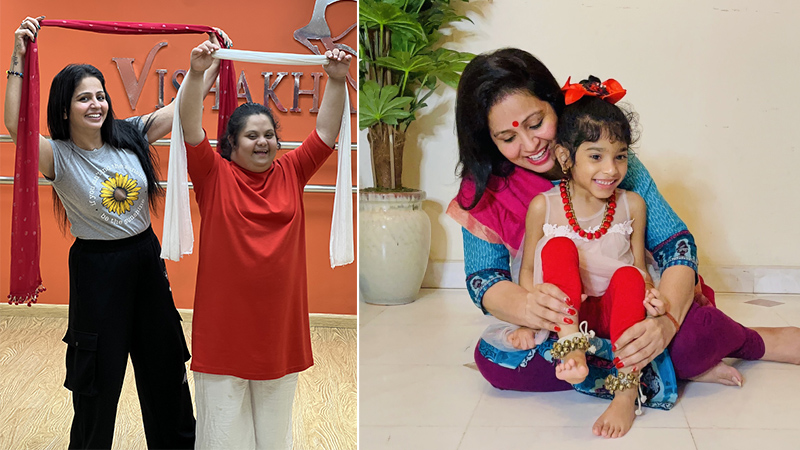Dance is all about movement. That movement is nothing but one of the purest forms of expression – a communication that knows no boundaries. Vishakha’s Dance Academy, also popular as ‘Vishakha’s: A Dance and Music Training Institute’ in Dubai, founded by Vishakha Verma, is built on the foundation of making inclusion count.
Kathak exponent Vishakha has been teaching the Indian classical dance form for over 15 years to children with special needs. “Arts should not and does not discriminate,” says 51-year-old Vishakha on making kathak inclusive to students with varying abilities.
Vishakha drew inspiration from dance events where children without physical or mental challenges could perform kathak with ease. She thought of making dance accessible to special children by teaching them the nuances therapeutically. “I had gone to witness a dance event once where autistic children were on the stage, quite unresponsive to the music. They could hardly twirl or move their body. I felt then that they could do more, with some help,” recalls Vishakha. “It’s difficult sometimes to make parents understand the healing power of dance. Dance is a form of non-verbal communication that children with learning disabilities understand better. That’s the beauty of art,” says Vishakha.

Establishing her dance school in Dubai wasn’t easy. From getting the required permits to overcoming language barriers and finding a local sponsor, it was a tough call. In December 2018, Vishakha’s dance academy – Dubai’s first inclusive dance school – was born. Despite it being a pioneering venture, she was embraced warmly by the community, and received widespread support.
Reflecting on those early days, Vishakha recalls a mix of emotions – excitement and hope amid healing and fulfillment.
However, she admits that the primary challenge during this period was managing the associated costs and striving to break even. Eventually, she got a grip on that.
For a dedicated dance director, the definition of success transcends conventional metrics, manifesting instead in the small yet significant progress of her students. Among them, children with various challenges have shown remarkable improvement through the medium of dance therapy.
One of the heartening stories involves a student with cerebral palsy, initially unable to move her legs or use her hands effectively. After six months of dedicated dance therapy, this young dancer achieved the standing and performing tatkar – a complex footwork element in kathak – entirely unaided. This milestone is not only a personal victory for the student but a source of inspiration for the entire team.
Another young learner, a four-year-old girl with Rett Syndrome, experienced joy in a new dimension. Known for her limited motor skills and inability to speak, she laughed for the first time during her dance therapy sessions. Such moments underscore the emotional and physical liberation that dance can facilitate, even in the most challenging circumstances.

“I encourage all my students to dance from their heart, feel their steps, and connect with the song. During classes, I also take time to connect with my students and give them a safe and welcoming space to express whatever is on their minds. This helps me build a personal bond with each of them,” says Vishakha.
In 2020, Vishakha was honored with the Global Disability Empowerment Award, a testament to her contribution to the field of disability empowerment through the arts. Her advice to women and children is to “accept their differences and pursue their passions”.
Vishakha has now expanded her mission by initiating efforts in India. She works as a dance therapist at various NGOs and also facilitates online classes. This digital platform enables students from any location worldwide to participate in her sessions.
Her vision extends to establishing an inclusive recreation center for adults of all abilities. Vishakha aims to create a space where people can explore and cultivate their talents in dance, art, singing, and even chess.
Vishakha encourages everyone to take a bold step towards achieving their dreams. Her story is not just about dance; it’s about challenging norms, breaking barriers, and creating a space where everyone, regardless of their abilities, can explore their potential. As she continues to inspire and empower, her work sends out a strong message that the arts can be a powerful vehicle for change. – editor@nrifocus.com


Leave a Reply